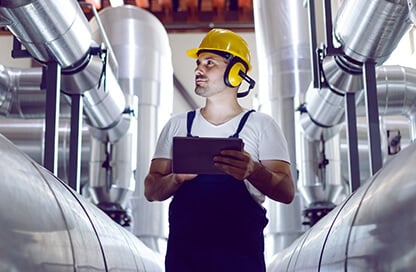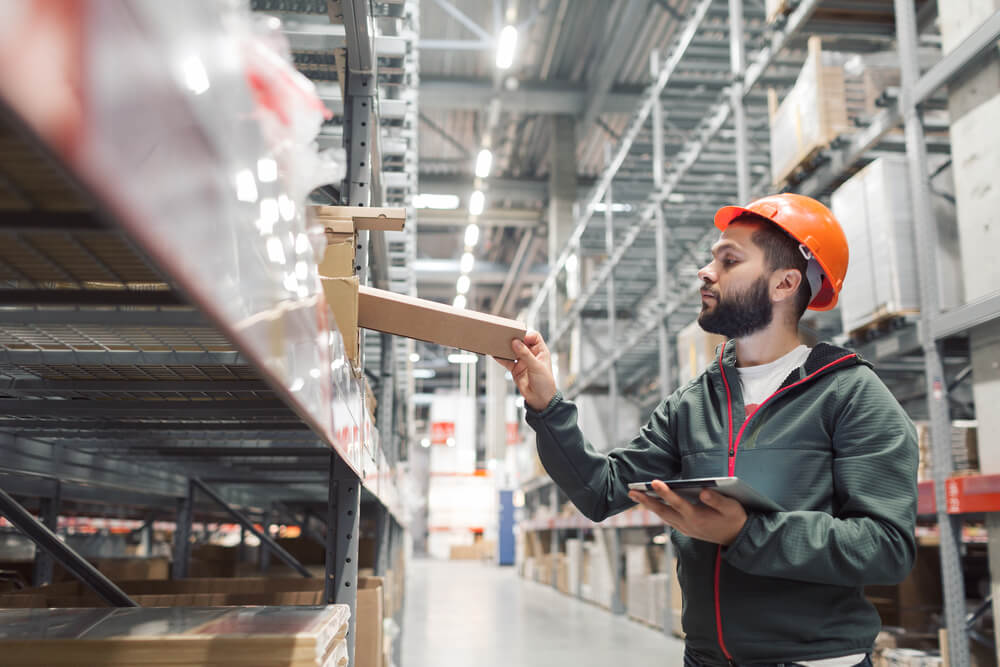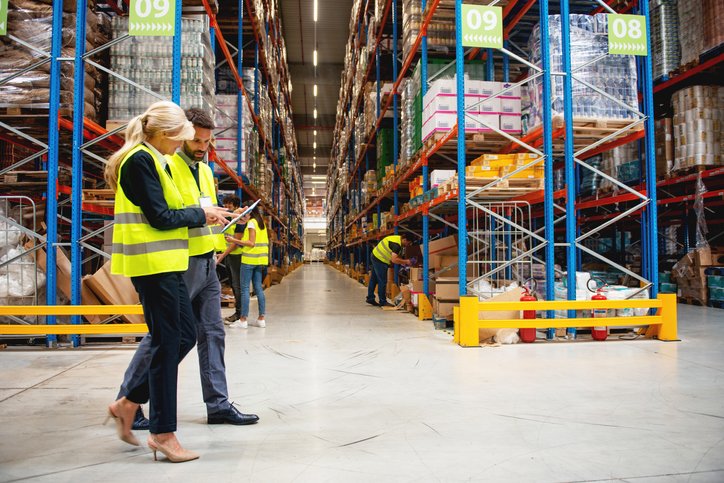Market forces are set to deliver a busy summer season with many looking to travel after years of staycations. According to a recent report from Forbes, a full 43% more Americans plan to travel in 2023. The Q1 Consumer Travel Index reports the number of people planning to travel in Europe is 56% which is up from just 10% in 2022. So to capitalize, hotels and resorts need to focus on the reasons people prefer them over online rental platforms like Airbnb. They need to have nicer amenities, more convenient food and beverage options, and better safety and security. And the best way to do that is with preventive maintenance checklists.
After years of online short-term rental platforms gaining ground on hotels, chains and independent operators across price points are set to make a collective comeback. In fact, according to a recent survey on hospitality and travel trends in 2023, over 70% of Americans say they would pick hotels over other types of rentals.
And the most interesting part of the shift back to hotels is the reason why.
Thirty-seven percent say it comes down to better amenities. Your average hotel has a lot more to offer than someone renting out a single unit in a condominium a few days at a time. Another big selling point for hotels: easy access to onsite restaurants and bars. Thirty-one percent of respondents in the same survey said they like the convenience of having access to lots of food and drink options without having to even leave the facility. According to the same survey, more people trust hotels to keep them safe. A full 74% said they thought hotels have better security, versus just 26% who felt safer with other options.
But to maintain this momentum, the hotel and resort industry need to give special attention to those elements that make amenities worthy of consumer choice. And it all starts with ensuring maintenance practices are a top priority. To do that, use comprehensive preventive maintenance checklists for hotels:
- Amenities including pools and HVAC
- Food and beverage
- Safety and security
Maintenance for hotel pools
One summer hotel amenity worth its weight in water is a pool. Especially for families with kids. It’s how they know they’re somewhere that’s better than home.
If your pool is cold, dirty, and surrounded by broken loungers, guests will notice, leading to in-person complaints and negative online reviews.
To ensure your hotel pool looks its best:
- Skim debris from the surface at least daily so it doesn’t have a chance to sink to the bottom
- Brush off debris and algae build-up from the walls and ladders at least weekly
- Follow up brushing with vacuuming, either with a robot or manually
- Clean out skimmers and returns, ensuring they are free of dirt and debris
- Check and clean the filter weekly or as needed. Backwash when the filter gauge is 8 psi above normal
- Test the pool water and add chemicals daily. Use shock treatments based on levels and manufacturers’ recommendations
- Trim back any vegetation, especially trees, near the pool to keep leaves and other garden litter out of the pool
In your preventive maintenance plans for pools, make sure to include the area surrounding the pool. Regularly check for cracks in the tile or cement surrounding the pool. Any furniture, including chairs, tables, and loungers, should be checked for wear and tear.
Maintenance for hotel HVAC
A big part of summer travel is going to a destination where the weather is warm. But too much heat can sour even the most enthusiastic travelers. Hotels need to ensure the AC stays on so everyone can stay cool.
For preventive maintenance on air conditioners:
- Replace the air filters every few months
- Clean the coils, both evaporator and condenser
- Inspect and clean both the drain line and pan
- Check and lubricate the fans and blower
- Inspect wiring for loose connections
- Test the thermostat
- Inspect air registers and ductwork, cleaning when needed
Part of the inspection process for your AC units should connect to your ongoing repair-or-replace decisions. It also helps to be able to track related work orders and costs, so you have a better sense of the overall trends. Once you start seeing a lot more downtime, you can start to look at the return on investment for upgrading.
Maintenance for hotel restaurants and bars
Just because it’s inside a hotel doesn’t mean it’s that different than a regular restaurant. Restaurants and bars are closely tied to your guests’ overall opinion of the hotel or resort, so delivering an exceptional dining experience is critical. Think of it this way: it’s a lot harder for a guest to put a bad meal behind them when they walk past the restaurant
Ensuring a stellar experience and good service means having solid preventive maintenance practices inside the kitchen. According to Modern Restaurant Management, part of the process of setting up a preventive maintenance schedule is asking yourself three questions about each asset in your kitchen:
- How much does the appliance cost?
- What impact does this asset’s unscheduled downtime have on my business?
- How often does this appliance require maintenance?
Once you have a sense of which assets to prioritize, you can start to set up a schedule of inspections and tasks for each one. The more important an asset is to your operations, the closer and more often you need to look at it.
Because so much of what’s in a kitchen is sharp or hot (or both), you need to have a steady schedule of preventive maintenance inspections and tasks (PMs) where your team of techs are looking specifically at safety. Make sure you have PMs for:
- Frying equipment
- Filters
- Fountain drinks
- Food safety sensors
For example, on your deep fryer, follow all the manufacturer’s recommendations for cleaning the filters and the exteriors, and for completing a boil out.
Maintenance for hotel safety and security
Safety and security are both broad and deep topics, so it makes the most sense to break them down into categories. For example, you can start by setting up PMs for safety fall prevention before looking at fire suppression.
Much here is obvious. You need to ensure the smoke detectors are working and the sprinklers are properly set up. But a lot isn’t. For example, does your maintenance team check that the wheels on the luggage carts work so bellhops don’t hurt their backs or unnecessarily fall?
For hotel security, check:
- Locks on all exterior service doors
- Gates to parking area
- Lighting so there are no dark corners or blind spots
- Wiring and lenses on security cameras
- Fences around property for holes or weak spots
- Gates around swimming area, including hinges
- Bars on basement and first-floor windows
- Locks on laundry and garbage chutes
- Communication systems for security personnel
By speaking with hotel security, you can get a better understanding of what they need in place to do their job. From there, you can build your list of PMs.
Summary
With so many people planning to travel, the summer of 2023 promises to be a busy travel season. It’s especially good news for hotels as more travelers are turning away from online rental platforms.
A big part of the push is how hotels offer better amenities, restaurants, and security. So, if the hotel and resort industry want to capitalize and continue this trend, they need preventive maintenance checklists to ensure they’re delivering what guests want. For pools, maintenance crews need to focus on keeping things clean.
When it comes to AC, they need to check everything from coils to fans. Inside, at the restaurants and bars, there are a lot of the same PMs as in the food and beverage industry. But now they’re even more important. PMs for safety and security cover everything from checking CCTV camera wiring to inspecting the wheels on luggage carts so bellhops don’t hurt their backs.
With the right combinations of maintenance activities, your guests have a great experience throughout the facilities, from the rooms to the common areas, the front desk to the parking garage.
Is this the best example? Wondering if there’s something more focused on the safety of guests in a busy hotel? Wet floors from entrances and exits to the pools? Carpets free of debris and trash? Hotel lobby people organization when its crowded?




